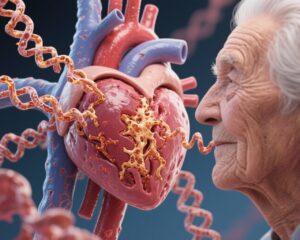Introduction: Your Body’s Hidden Cancer Defense
Cancer remains a leading cause of death worldwide, burdening millions of lives and healthcare systems. Yet, a growing body of scientific research reveals that our lifestyle choices can profoundly influence cancer risk. Rather than viewing cancer as an inevitable fate, emerging evidence highlights that the body’s inherent “anticancer” capabilities can be strengthened through certain habits.
Even adopting a few of these protective behaviors can form a robust barrier against cancer development. This article explores ten scientifically supported habits that cancer cells “fear” — habits that lower cancer risk through mechanisms such as reducing inflammation, oxidative stress, and harmful exposures, while boosting immunity and cellular repair.
Scientific and Clinical Evidence Behind Protective Habits
1. Maintaining a Healthy, Balanced Body Weight
Obesity is not only a cosmetic concern but a major risk factor for many cancers. The International Agency for Research on Cancer (IARC) has identified excess body fatness as causally linked with increased risk for a range of malignancies including uterine, kidney, liver cancers, and hematologic cancers (Lauby-Secretan et al., 2016).
Chronic obesity drives cancer risk through multiple pathways: insulin resistance, chronic inflammation, altered hormone levels, and increased growth factors that fuel tumorigenesis. The risk correlates with the duration and extent of overweight status, emphasizing the importance of managing healthy weight from youth through adulthood.
Maintaining a normal Body Mass Index (BMI) is one of the most cost-effective strategies to reduce cancer risk, providing a “shield” against metabolic disturbances that promote malignant transformation.
2. Choosing Unsweetened Beverages: Tea and Coffee
Tea and coffee lovers have reason to cheer. Regular consumption of unsweetened tea or coffee is linked with a lower overall cancer incidence and mortality (references reviewed in recent meta-analyses).
Particularly notable is the reduction in respiratory system cancers among habitual drinkers of plain tea or coffee. Antioxidant polyphenols such as catechins in tea and chlorogenic acid in coffee may protect lung tissue from carcinogenic insults. Drinking two cups daily could be likened to providing the lungs a protective barrier.
Avoid adding sugars or creamers that could negate these benefits by contributing to metabolic dysfunction.
3. Three Golden Lifestyle Habits That Cut Cancer Risk
- No Tobacco and Alcohol: Tobacco smoke and alcohol are classified by WHO/IARC as Group 1 carcinogens. Avoiding these agents removes key “fuel” sources that promote cancer development in lungs, oral cavity, esophagus, liver, and more.
- Regular Physical Activity: Exercise boosts immune surveillance, enhances DNA repair, and reduces obesity and inflammation – all protective against cancer. The World Health Organization recommends at least 150 minutes of moderate-intensity exercise weekly to realize these benefits (Guo et al., 2022).
- Consistent Quality Sleep: Insufficient sleep disrupts hormone balance and immunity and correlates with higher cancer risk. People sleeping less than 6 hours per night long-term have a notably higher cancer incidence than those sleeping 7–8 hours (studies summarized in sleep-cancer research).
Together, these habits create a physiological environment hostile to cancer initiation and progression.
4. Four Cancer-Fighting Foods
Nutrition plays a critical role in modulating cancer risk. Specific foods contain bioactive compounds with antioxidant, anti-inflammatory, and hormone-modulating properties:
- Broccoli and Other Cruciferous Vegetables: Rich in sulforaphane and antioxidants, these vegetables can lower lung, stomach, colorectal cancer risks by enhancing detoxification enzymes.
- Soy Products (Tofu, Soy Milk): Contain plant estrogens (isoflavones) that modulate estrogen receptors, contributing to reduced breast and colorectal cancer risks.
- Carrots: High in beta-carotene (a precursor to vitamin A), linked with lower overall cancer incidence with regular consumption.
- Mushrooms: Small daily intakes correlate with decreased overall cancer risk, especially breast cancer, possibly via immune-enhancing polysaccharides and antioxidants (Zhang et al., 2021).
Incorporating these foods regularly is a practical, natural approach to fortify defenses against carcinogenesis.
Addressing Misconceptions and Harmful Behaviors
Despite clear evidence, common public misconceptions and harmful habits persist:
| Misconception | Clarification |
|---|---|
| “Only genetics determine cancer risk.” | While genetics play a role, lifestyle factors substantially modulate risk and are in our control. |
| “Light or occasional smoking is safe.” | No level of tobacco exposure is risk-free; smoking anywhere raises cancer risk. |
| “Exercise is not needed if I eat well.” | Physical activity independently reduces cancer risk beyond diet effects. |
| “Sleep loss only causes fatigue.” | Chronic sleep deprivation also impairs immunity and increases cancer susceptibility. |
| “Adding sugar to tea or coffee is harmless.” | Sugar intake contributes to obesity and metabolic disorders, increasing cancer risk. |
Understanding these clarifications can empower behavioral changes for cancer prevention.
Case Scenario: Emily’s Journey to Cancer Prevention
Emily, a 45-year-old office worker, had a family history of various cancers and realized she was overweight, smoked socially, and struggled with irregular sleep. After learning about lifestyle impacts on cancer risk, she committed to quitting smoking and alcohol, started walking daily, swapped sugary drinks for unsweetened green tea, improved her diet with broccoli, tofu, carrots, and mushrooms, and set a regular sleep schedule.
Within a year, her weight normalized, energy improved, and she felt empowered controlling her future cancer risk. Emily’s story underscores how adopting even a few of these habits meaningfully builds the body’s protective barrier.
Expert Insights
Dr. Laura Simmons, an oncologist and cancer prevention researcher, advises, “Lifestyle modifications reduce not only cancer risk but also improve overall wellbeing. Patients often underestimate the power of simple daily habits. Encouraging manageable, sustainable changes can transform population health.
Combining weight management, diet, exercise, and avoiding carcinogens is the best strategy against many cancers.”
Conclusion: Building Your Anti-Cancer Shield One Habit at a Time
The burden of cancer is daunting, yet science reveals that many common cancers are preventable through modifiable lifestyle factors. From maintaining a healthy weight and choosing unsweetened tea or coffee to regular exercise, quality sleep, and a diet rich in specific vegetables and mushrooms, these habits collectively create a strong internal defense.
Even adopting a few can reduce cancer risk significantly. Empowered with knowledge and practical actions, individuals can help build a future with fewer cancer cases and healthier lives.
Start today: how many of these ten “cancer-fighting” habits do you practice?
References
1. Lauby-Secretan B, et al. (2016). Body Fatness and Cancer — Viewpoint of the IARC Working Group. New England Journal of Medicine, 375(8): 794-798.
2. Guo W, et al. (2022). Physical activity and risk of overall and site-specific cancer in Chinese adults: a prospective cohort study. International Journal of Behavioral Nutrition and Physical Activity, 19: 61.
3. Zhang S, et al. (2021). Mushroom consumption and risk of cancer: a systematic review and meta-analysis of observational studies. Advances in Nutrition, 12(6): 1971–1983.



